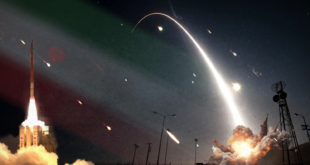Overestimated and overconfident, Russia’s armed forces floundered in the face of fierce resistance after invading Ukraine on Feb. 24. They retreated from Kyiv and other cities they had expected to take within a few days. Some of Ukraine’s supporters then made the opposite error of triumphalism — or so it would appear from more recent events in that country. Victory for Ukraine is nowhere near a realistic short-term prospect. Russian President Vladimir Putin has reorganized and mounted a bloody, tactically primitive but effective offensive in Ukraine’s eastern Donbas region. Russian artillery is inflicting thousands of combat casualties on Ukraine’s outgunned troops, and the Russians are close to capturing Severodonetsk, a prelude to control over Luhansk, one of Donbas’s two component provinces.
With the invasion now nearly four months old and at an inflection point — between its initial shocks and a longer-term grind — the United States and its allies must learn the right lessons and draw the right conclusions. The first is to take seriously both Russia’s intentions and its capabilities. Mr. Putin still considers all Ukraine to be Russian, as he indicated in a June 9 speech likening his current war to Peter the Great’s 18th-century campaign to retake territory from the Swedish Empire. Despite the vast losses of men and materiel Mr. Putin has already sustained, the Russian military retains an advantage over Ukraine in heavy weaponry crucial to the fight: planes, tanks and artillery.
At the same time, Russia has indeed been forced to expend enormous resources for the sake of relatively limited territorial gains. It could have to pause its offensive if and when the fight for Severodonetsk ends. Holding the ground will likely require facing an insurgency. Economic sanctions should deny Russia access to technology it needs to rearm. Thus, Ukraine can not only withstand the onslaught but also bounce back and take the fight to the Russians — if it gets enough arms, especially heavy artillery, from its allies, promptly.
The good news is that at least some of the needed armament is on the way. The Biden administration announced an additional $1 billion worth on Wednesday, including artillery, ammunition and coastal defense systems. At a meeting of more than 50 nations at NATO’s Brussels headquarters that same day, five other countries promised Ukraine long-range precision strike weapons systems. Germany, which has been slow to fulfill its promises, says it will soon send Ukrainian troops three multiple-launch rocket systems.
Difficult as it will be to counter Mr. Putin’s military capabilities, the true challenge facing the West is to match his determination, despite the war’s painful economic repercussions. On that front, the evidence is more mixed: The Biden administration, Britain and NATO’s Eastern European members are projecting firmness while other leaders, such as President Emmanuel Macron of France, allude to an eventual negotiated settlement. France, Germany, Italy and Romania on Thursday did support making Ukraine a candidate for eventual membership in the European Union.
A stalemated war could give Russia time to consolidate its territorial gains — and foment division within Western ranks. Hastening and broadening military aid to Kyiv is the best way to prevent that.
 Eurasia Press & News
Eurasia Press & News



